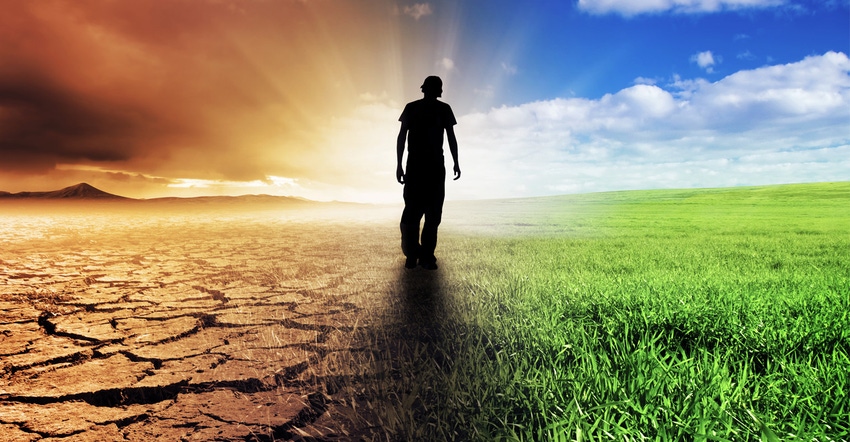
When it comes to the subject of climate change there is a great deal of contention between those who ― at one extreme or the other ― believe or do not believe in the science behind it and the resulting penalties that must be paid for either addressing or ignoring the warnings associated with global changes related to the planet's climate.
To say it is a major political bombshell is an understatement, but regardless of where you stand on the issue, it is important to remember that the extremes of support and non-support for climate change represent only a small percentage of overall opinions about the changing climate.
Case-in-point, many Americans believe climate change is a reality, but disagree on the primary causes for it, some saying greenhouse gases caused by industry is the culprit while others might argue climate change is the result of the normal cyclic progression of Earth's climate.
Scientists at New Mexico State University (NMSU) believe regardless your position on the topic and the reasons behind widespread changes in the environment, education is the answer to getting to the core of the problem and gaining a better understanding by examining everything we know about the subject, regardless of political bias. The "coming together" of voices supporting positions of academia, science and industry and the willingness of the general population to explore the issue is the best way to learn the pros and cons and ins and outs of climate change and what it means in our modern world.
That seems to be the intent of NMSU's comprehensive climate change educational series, an ongoing program of exploring the topic through the voices of a number of presenters and speakers. The New Mexico State University Climate Change Education Seminar Series, or NMSUCCESS, is an interdisciplinary series bringing a range of experts to NMSU, and other venues in Las Cruces, to promote informed discussion of the causes and consequence of climate change. The series began in the spring of 2018 and is currently scheduled to continue through the spring of 2019.
The fourth climate change presentation in the series is scheduled for Nov. 28 with a closer look at cap and trade programs used to control carbon emissions and other types of pollution. Michael Walsh, managing director for public policy and research at IncubEx, LLC, will be the presenter at the event, beginning at 7 p.m. at the University's Domenici Hall, Room 109 on the Las Cruces campus.
Walsh's presentation, titled “Environmental Markets: From Sulfur to Carbon to Water and Beyond,” brings his experience and lessons learned from helping to implement one of the first, mass-scale U.S. programs to reduce acid rain and his work on the Chicago Climate Exchange – the world’s first voluntary, legally binding greenhouse gas reduction and trading program ― to series participants.
Cap and trade programs are market-based regulatory systems that have become one of the leading tools worldwide to reduce greenhouse gas emissions. Walsh will review the rationale, mechanics and implementation experience with market-based cap and trade regulation of conventional air pollutants as well as greenhouse gases. He will also provide insights from helping implement one of the first mass-scale U.S. programs that resulted in enormous reductions in SO2 and NOx emissions at low cost.
He says the pathway from the early 1990s Acid Rain Program through Kyoto to today's globally expanding carbon and Renewable Energy Certificate markets, including the Chicago Climate Exchange, the European Union's Emissions Trading System, and programs in California, the U.S. Northeast, China, and the aviation industry, will be reviewed during the presentation. Frontiers of the concept as applied to water quantity and quality will also be addressed.
An October report from the Intergovernmental Panel on Climate Change predicts increasingly catastrophic environmental impacts as early as 2040 unless drastic measures, such as a carbon tax, are used to curb greenhouse gas emissions, Walsh says.
Other NMSUCCESS presentations so far include a review of the recent spike in heat-related deaths in Phoenix by David Hondula, Arizona State University; what the geological record predicts for a future with unchecked climate change by Isabel Montanez, the University of California at Davis; and practical steps the U.S. can take to address climate change by Scott Denning, Colorado State University.
About the Author(s)
You May Also Like




